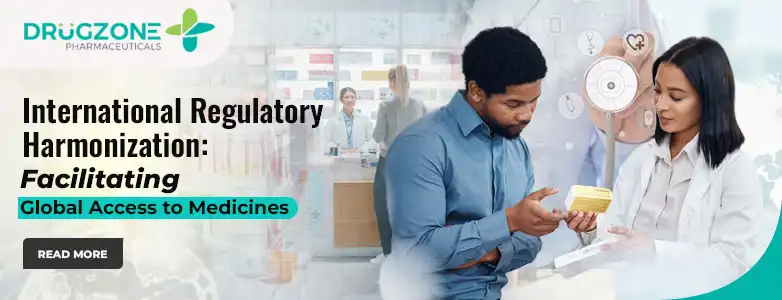
Posted On: March 19, 2025
International Regulatory Harmonization: Facilitating Global Access to Medicines
As the world becomes more connected, ensuring that medicines are safe, effective, and accessible everywhere is essential.
International regulatory harmonization helps standardize pharmaceutical regulations across countries. This makes it easier for medicines to reach patients globally. When it comes to pharmacy distributors, this process streamlines approvals, reduces costs, and improves drug availability.
What is International Regulatory Harmonization?
Regulatory harmonization aligns drug approval standards and quality requirements across different regions.
Countries have their own regulatory agencies, like the FDA in the U.S., the EMA in Europe, and the PMDA in Japan, each with specific guidelines. Differences in these regulations can delay drug approvals and complicate global distribution.
Organizations like the International Council for Harmonisation of Technical Requirements for Pharmaceuticals for Human Use (ICH) work to create common standards. This helps ensure that a medicine approved in one country can be more easily accepted in others.
Benefits of Harmonization for Pharmacy Distributors
Here's how harmonization benefits pharmacy distributors!
1. Faster Drug Approvals and Market Entry
Different regulations can slow down the approval of new medicines. Harmonization helps create common guidelines, reducing these delays.
This means pharmacy distributors can access and supply new medications more quickly, so patients get the treatments they need without unnecessary wait times.
2. Lower Costs and Greater Efficiency
Pharmaceutical companies often spend millions running separate clinical trials for different countries.
Harmonization allows one set of tests to be accepted worldwide, cutting down duplication and costs. This translates to lower procurement costs and better pricing for healthcare providers and patients.
3. Better Drug Quality and Safety
With international standards in place, medicines must meet high-quality benchmarks everywhere.
This reduces the risk of substandard or counterfeit drugs entering the market. It ensures that the medicines they supply are safe, effective, and compliant with global regulations.
4. Greater Access to Life-Saving Medications
Some drugs are available in one country but not another due to different approval processes.
In such cases, harmonization helps expand access to critical treatments, especially in developing nations. With globally accepted standards, pharmacy distributors can help bridge these gaps and ensure patients receive the medicines they need.
5. Ethical Practices and Reduced Animal Testing
Previously, drug manufacturers had to conduct separate animal studies for different regulators.
Now, with shared standards, one approved study is accepted across multiple countries, reducing unnecessary animal testing while still ensuring drug safety.
Challenges in Achieving Full Harmonization
Despite the several upsides, full harmonization is difficult. That's because different countries have unique healthcare policies and economic conditions, which affect how regulations are implemented.
Plus, some low- and middle-income countries lack the resources to adopt harmonized standards quickly. However, continued collaboration between regulators and the pharmaceutical industry is helping close these gaps.
Drugzone’s Commitment to Global Standards
Drugzone recognizes the importance of international regulatory harmonization in ensuring safe and accessible medicines. As a trusted pharmacy distributor, we closely monitor regulatory updates to ensure that the products we supply meet the latest global standards.
We source from compliant manufacturers and adhere to internationally recognized guidelines, and help healthcare providers access high-quality medicines without delays.
Frequently Asked Questions ( FAQs)
Q. What is international regulatory harmonization in the pharmaceutical industry?
It is the process of aligning drug approval standards across countries to ensure faster access to safe and effective medicines worldwide.
Q. How does regulatory harmonization benefit pharmacy distributors?
It helps streamline drug approvals, reduce costs, and ensure consistent quality, which makes it easier for distributors to supply medicines globally.
Q. What are the challenges in achieving full harmonization?
Differences in healthcare policies, economic conditions, and regulatory resources across countries make it difficult to implement a fully unified system.









